Every Black Mirror Season 7 Episode, Explained and Ranked—You Definitely Missed These Hidden Clues
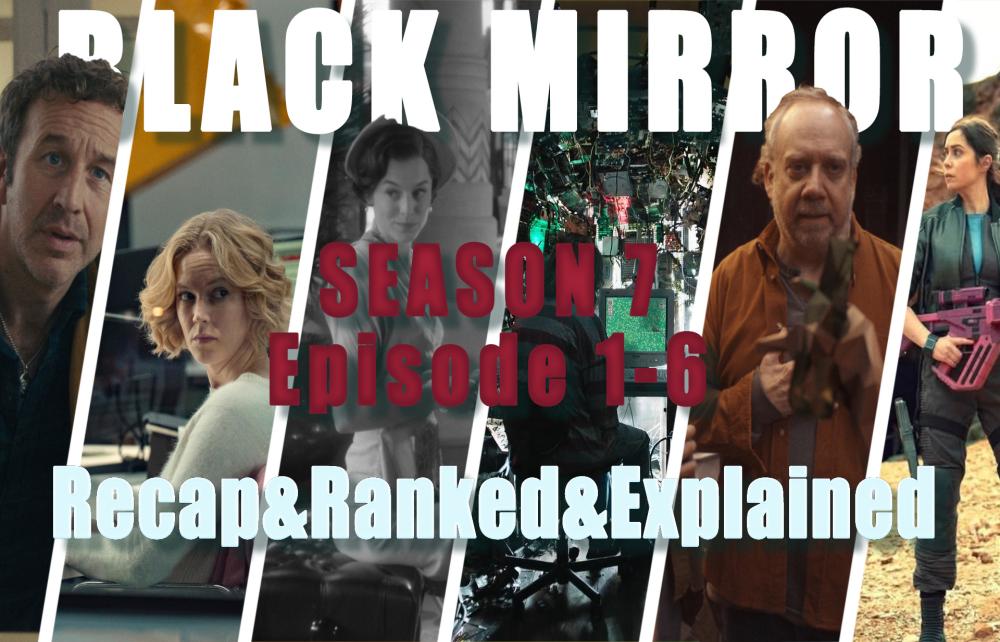
PHOTO: Space
🚨 Spoiler Alert! If you haven’t watched Black Mirror Season 7 yet, stop scrolling—major plot twists and hidden clues ahead. Want to watch it totally free?
Click here now before it’s gone
Black Mirror is back—and Season 7 hits different. After a rocky ride through seasons past, the tech-horror anthology returns with six new episodes that blend near-future nightmares, haunting what-ifs, and chilling echoes of our digital age. This season dives deep into memory, history, and the cost of progress—without dragging us into full-on AI panic. Some episodes are instant classics, others are slow burns with hidden gems. Whether you're here for the dystopia or the drama, we've broken down every episode—ranking them from worst to best and uncovering the hidden clues you probably missed.
👇 Tap through each episode breakdown below—we promise, it gets wilder with every twist:
- [BLACK MIRROR S7E1] Just Predicted Your Future—And You Should Be Terrified
- [BLACK MIRROR S7E2] "Bête Noire" Explained: This Childhood Lie Turned Into a Tech-Fueled Nightmare
- [BLACK MIRROR S7E3] "Hotel Reverie" — When AI Love Destroys Reality
- [BLACK MIRROR S7E4] "Play Thing": When Artificial Life Strikes Back – And Humanity Pays the Price
- [BLACK MIRROR S7E5] "Eulogy" Explained: When the Past Lies to You – And Love Becomes a Ghost
- [BLACK MIRROR S7E6] "USS Callister: Into Infinity" Explained: When Digital Gods Fall – And the Clones Fight Back
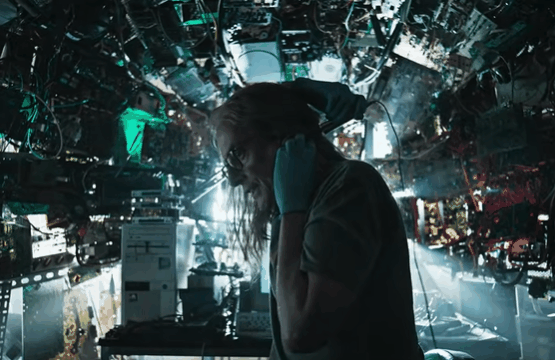
PHOTO: YouTube: BrainPilot
🎯6th
Episode 4: "Plaything" – Cyberpunk Crime Meets Digital Utopia
Enter "Plaything," a digital narrative with a basic crime at its center. Here is an analysis of the episode's important events, concealed meanings, and items you could have overlooked:
RELATED: [BLACK MIRROR S7E4] "Play Thing": When Artificial Life Strikes Back – And Humanity Pays the Price
1 The Crime That Starts It All
- Year: 2034
- Cameron (Peter Capaldi), a guy with a crazy appearance, is charged with a 40-year-old murder. The surprise? Decades have passed with the murder unresolved.
2 The Digital Universe Develops
- The Thronglets: Introduced by Colin (Will Poulter), Thronglets are cute digital beings that users foster. But these are not only Tamagotchis; they are a way to improve mankind.
- What’s Hidden: Cameron's hallucinating encounter with these beings runs deeper than it first appears. When he gets their birdsong, he finds they are not just harmless beings but also instruments with a more sinister goal.
3 The Final Illusion
- False Utopia: The episode toys with the concept of a utopian society via technology. Thronglets imply a society in harmony, but the void inside these beings points to a deception. The more Cameron probes into their actual essence, the more empty it gets.
- Hidden Clue: The distortion of perception is emphasized by the fact that the animals only appear relevant while Cameron is on an acid trip. The digital utopia is a fantasy that can only be completely grasped in a distorted condition.
4 The Twisted Ending
The Problem with Humanity: The ending, which exposes the actual price of Cameron's participation by means of a startling twist, seems hurried and unfulfilling. The episode's sudden conclusion makes one wonder whether the technology was ever really able to promote human collaboration or whether it was really another trap.
Important Lessons & Hidden Meanings
- Brooker's cynicism about human nature is clear; while technology may hold out hope for harmony, it cannot erase our natural greed.
- The Thronglets are a metaphor for the hazards of fleeing into a digital utopia rather than facing the actual world.
- Hidden under the surface, the game's actual goal is revealed only by Cameron's changed state of consciousness. This highlights how technology can hide the more sinister, deeper goals of those who produce it.
- A significant turning point is Cameron's capacity to "hear" the Thronglets only following an acid trip. It shows how sometimes a warped perspective is needed to really grasp the influence of technology.
- The episode's use of digital animals as a substitute for human connection emphasizes how, in our actual world, we frequently depend on shallow connections—social media, online games—to meet emotional demands; nevertheless, they constantly feel empty.
"Plaything" is a bold critique of how technology can overpromise. It shows a world where computerized beings stand for human harmony, yet, like the Thronglets, they are hollow. If you want to explore further the intricacies of technology and its influence on human relationships, Halt and Catch Fire could be useful. It presents a more genuine perspective on the crossroads of personal ambition and the digital revolution.

PHOTO: YouTube: BrainPilot
🏅5th
Episode 5: "Eulogy" – A Journey Through Regret and Lost Love
Here is a fast analysis of "Eulogy," a reflective but sad exploration of the effects of memories and repressed grief. This episode uncovers buried layers of sorrow, introspection, and lost chances.
RELATED: [BLACK MIRROR S7E5] "Eulogy" Explained: When the Past Lies to You – And Love Becomes a Ghost
1 The Arrangement
- A angry, lonely guy expected to provide recollections for an immersive monument of his dead ex-girlfriend, Carol, Phillip (Paul Giamatti).
- A wearable artificial intelligence companion, Patsy Ferran, guides Phillip through images and keepsakes from his punk days in Brooklyn with Carol, so confronting the past he has attempted to bury.
2 The Emotional Battle
- The device is about finding the truth, not only about nostalgia. As he looks back on the images he changed following the split, Phillip's self-destructive behaviour becomes clear. Carol isn't the only bad guy in their broken relationship; Phillip has his own regrets as well.
- Phillip's denial of his own errors traps him in resentment. The program gently criticizes how we frequently assign blame to others rather than accepting responsibility for the breakdown of relationships.
3 The Core of the Episode
- Patsy Ferran's AI advisor is a mirror, not only a tool; it questions Phillip's viewpoint and softly pushes him to recognize the shortcomings in his reasoning. It's not only about remembering Carol as the couple electronically relives their shared experiences; it's also about realizing his own duty in their damaged relationship.
- The AI's quiet resistance to Phillip's self-pity exposes the unstated reality: he is self-isolated. His anguish is not only from the breakup but also from his prior clinging.
4 The "A Christmas Carol" Parallel
- Ghosts of the history: Just like A Christmas Carol, Phillip's trip through the photographs is a confrontation with his history. Whereas A Christmas Carol provides salvation, "Eulogy" seems more like a bitter recollection of lost opportunities than a changing event.
- Hidden Insight: No jokes or high-energy moments are deliberate. Brooker wants you to experience the burden of regret; there is no fairy tale cure for Phillip's sorrow.
Important Lessons & Hidden Meanings
- Theme of Regret: "Eulogy" is a reflection on the past—on how we remember, how we forget, and how we carry the emotional load of what we never settled.
- Although the episode expertly portrays the internal conflict of sadness and regret, it occasionally seems as though it could have gone farther to provide deeper understanding of Phillip's state of mind and the AI's part in shattering his emotional barriers.
- The Subtle Impact of the AI: Though sometimes downplayed, the AI is really important. It not only guides Phillip but also pushes him to change his point of view gradually but forcefully.
- Carol's Absence: Carol's voice missing from the show increases the sadness. You have to view her with Phillip's prejudiced, distorted perspective. This emphasizes the one-sided character of recollection and how frequently we twist the truth to portray ourselves as the victim.
"Eulogy" is a sensitive and reflective look at how we handle self-inflicted emotional harm, loss, and sadness. Although lacking the edge or drive of other episodes, it nonetheless offers a fascinating perspective on how our past influences our present—if only we could confront it directly.
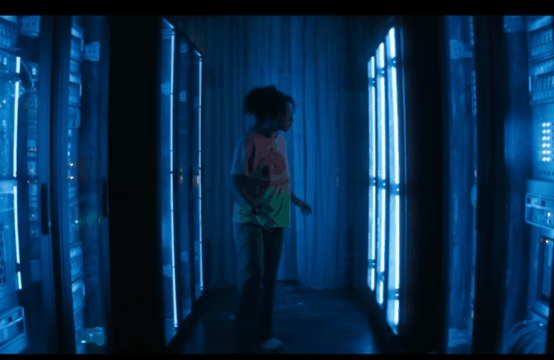
PHOTO: YouTube: BrainPilot
🎖️4th
Episode 2: "Bête Noire" – Memory Games and a Revenge Reboot
Can you truly believe what you recall when a high school frenemy reappears and your life begins to collapse? Bête Noire offers a slow-burn psychological thriller more about the manipulation of perception than technology.
RELATED: [BLACK MIRROR S7E2] "Bête Noire" Explained: This Childhood Lie Turned Into a Tech-Fueled Nightmare
1 The Setup: Enter the Mind Maze
- Timeline: Corporate world in near future
- Plot: Maria is flourishing at a food-tech firm until Verity, a former high school friend, joins the team. While Maria was well-liked and self-assured, Verity was formerly awkward and ignored. But now, the tables have changed.
- Maria starts to forget important information—deadlines, talks, even her own deeds—since Verity arrived. Her life gets more unstable the more she doubts reality.
2 The Gradual Unraveling
- Power Shift: Verity, formerly the outcast, now has the advantage. Her change seems strangely flawless and odd.
- Gaslight 2.0: Maria isn't only losing memories. She is being forced to forget. Her steady spiral points to psychological or technological manipulation.
3 The Last Battle
- Climax: The episode changes from unsettling suspense to psychological battle as Maria at last faces Verity. Driven by years of suppressed anger and a wish for deliberate retribution, this is a showdown.
- The Actual Enemy: Trauma, not only technology. Verity sees technology as a means for emotional justice rather than a wicked genius.
Important Lessons & Hidden Meanings
- High School Never Stops: The episode questions how former societal structures continue to plague maturity. Verity's vengeance is based not on creativity but on shame.
- Revenge as Reprogramming: Verity's weapon is version control, not violence. Maria's world gets overwritten like damaged software.
- Tech That Isn’t There—But Might Be Soon: The lack of obvious sci-fi technology really increases the episode's terror. Subtle neurological interventions or environmental hacking could cause the memory loss—nothing that seems too far-fetched nowadays.
- Verity's Body Language: Her quiet assurance seems almost at odds with Maria's disintegration, implying she is always one step ahead—like a developer correcting a malfunctioning program.
- Maria never considers how she handled Verity in school. Her guilt has been wiped out like her calendar reminders; the lack of regret or recall itself can be a sign.
With a tech-noir twist, "Bête Noire" unfolds like Mean Girls meets Inception. Though less showy than other episodes, its disturbing, subtle manipulation delivers a psychological impact.
Forget about sci-fi equipment; occasionally the most hazardous changes are those done to our memories.
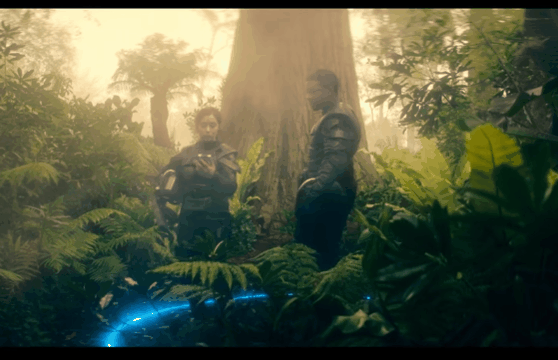
PHOTO: YouTube: BrainPilot
🥉3rd
Episode 6: “USS Callister: Into Infinity” – From Digital Dictatorship to a Universe of Chaos
The fan-favorite space crew is back—but freedom comes at a cost. Into Infinity picks up years after the escape from Robert Daly’s twisted digital empire and plunges us into a universe that’s even more dangerous than one man’s ego.
1 The Setup: Enter the New Chaos
- Timeline: Deep inside the Infinity world, post-Daly escape
- Recap of the Plot: Now captain of the USS Callister, Nanette Cole (Cristin Milioti) guides a freed crew over a large online universe with 30 million users. But what about the utopia they battled for? It has become a digital survival game. Daly, their previous jailer, is deceased. But now, they confront something even more terrible: the online human society's collective toxicity. Trapped on Daly's computer, we had to cope with one sociopath. We have an entire cosmos full of them now.
2 The Actual World Interferes
- Back to Reality: Threatening to reveal the initial offenses, a reporter starts looking into Daly's unlawful DNA-based cloning technology. Desperate to maintain his company's reputation, Walton (Jimmi Simpson) will do whatever to hide the truth.
- Tension: The episode blurs the digital and real-world boundaries: one universe requires survival credits, the other needs PR damage control. Both are out of control.
Important Lessons & Hidden Meanings
- Freedom Costs Money: The team is no longer Daly's toys; they are now battling for digital survival in a game run by cruel gamers. Liberation is not peace; it only indicates a more complicated battlefield.
- From One Tyrant to Many: Season 4 criticized one man's misuse of authority. Season 7 amplifies that concept: virtual environments magnify real-world brutality; they are not safe from it.
- Moral Gamification: The Callister group robs other players and steals in-game money to live. The same individuals earlier harmed by internet abuse now tread an ethically ambiguous line. Survival has made them ethically adaptable.
- The Clone Ethics Paradox: Daly may be dead, but his unlawful DNA cloning creates ethical consequences. The real-world journalist subplot brings back the discussion: What rights do digital beings have if they experience pain, memory, and fear?
- Walton's Remorse Disguised as Greed: Though he seems motivated by profit, his fixation on silencing the DNA-cloning narrative suggests more profound remorse. Is he attempting to save his business or deny his involvement?
- Meta-Mirroring of Gamers: The toxic online society inside Infinity seems like a reflection of real-world gamer culture—where abuse, anonymity, and moral detachment frequently run rampant.
- From rookie to Nanette now takes difficult, occasionally dubious decisions. Her leadership journey subtly challenges whether power inevitably corrupts, even in those who begin with the finest intentions.
USS Callister: Into Infinity transforms fan nostalgia into something more sinister and ambitious. It inquires: What follows emancipation? What do digital lifeforms deserve from us? And how different are we from Daly should we utilize virtual space for harm?
At its heart, it's a clever upgrade on the original, even if it throws a lot at you—ethical conundrums, gamer satire, real-world concerns. It's more than fan service. It is a complete systems failure.
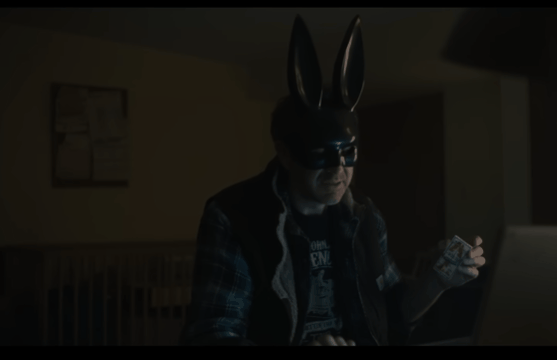
PHOTO: YouTube: BrainPilot
🥈2nd
Episode 1: “Common People” – Love, Healthcare, and the Price of Staying Alive
"Common People" isn't the most mind-bending Black Mirror episode—but it hits close to home. It's emotional, grounded, and alarmingly familiar. When maintaining a loved one alive turns into a subscription plan, what results?
RELATED: [BLACK MIRROR Season 7 Episode 1] Just Predicted Your Future—And You Should Be Terrified
1 The Arrangement: A Family on the Verge
- Timeline: Suburbia in the near future
- Plot Summary: Amanda (Rashida Jones) is a teacher. A metalworker, Mike (Chris O'Dowd). They are attempting to heal from a miscarriage and set aside enough for another chance at parenting. But life throws them a terrible curveball—Amanda collapses at school and is diagnosed with a brain tumor. It cannot be cured. At least, not the old-school sort. Enter Rivermind: a biotech firm providing a no-cost "miracle" treatment. The catch is It ties Amanda into a $300/month subscription model and she'll require more sleep each day to assist offset the server load now partially operating her brain. Mike agrees. What else can he do?
2 The Actual Price of Survival
- When Life Is Controlled by Subscriptions: What begins as a reasonable monthly cost rapidly becomes a digital catastrophe. Mid-conversation, Amanda begins to babble wildly, spilling advertising and slogans from her mouth. Though it's a software bug, the only solution is a costly Rivermind Plus upgrade.
- Slight? Not Quite: The show criticizes tiered subscription society by telling viewers the expenses never end once they are locked in. It's not only a criticism on technology platforms; it's a thorough attack on how our medical system is turning into simply another consumer item.
Key Takeaways & Hidden Meanings
- Love Is Not Free—Literally: At first, Mike's decision seemed obvious, but the financial strain mounts. It's a gradual process. Love compels you to agree before you may inquire.
- Corporate Politeness, Ruthless Outcomes: Tracee Ellis Ross's character smiles while delivering bad news. It's a sobering reminder of how contemporary capitalism wraps cruelty in "customer service" terminology.
- Rivermind markets exclusivity rather than merely health. Amanda's fundamental strategy is unsustainable, embarrassing, and faulty. Improved function costs more. That is not health care. It's a class structure.
- Amanda and Mike's relationship is damaged not by disease but by the technology supposed to save her. Their privacy is violated, their contact is disrupted. The cost of keeping her alive is the gradual loss of all she once was.
- The tiered name scheme reflects actual streaming services straight. It's a comment on how even life-saving systems are being gamified, not only about tech satire.
- Amanda sleeping additional hours is not only a strange side effect; it reflects how humans are being transformed into nodes of data really driving the computer controlling them.
- Though the song never plays, the title is obviously a reference to Pulp's working-class hymn "Common People." That lack seems deliberate—a metaphor for the silent suffering of the event. There is no uprising.
Common People isn’t flashy, but it’s unsettling because it feels so real. It turns love into a payment plan and survival into a subscription package. You don’t need robots or brain implants to find horror in this episode—it’s already here.
It's a stark reminder that when tech companies “save” us, they rarely do it for free—and sometimes, the cost isn’t just financial. It’s human.
How much would you pay to keep someone you love alive? And how long before that decision stops feeling like your own?
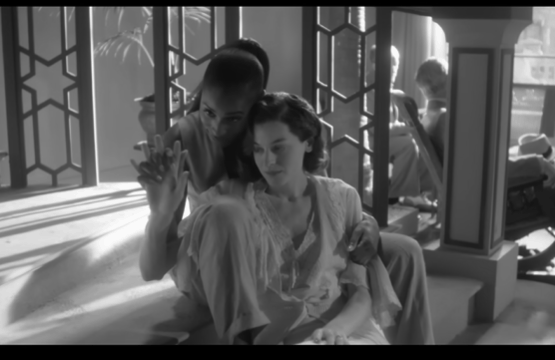
PHOTO: YouTube: BrainPilot
🥇1st
Episode 3: “Hotel Reverie” – What Happens When AI Tries to Rewrite Hollywood’s Past?
This isn't your usual Black Mirror horror journey. Hotel Reverie trades jump scares for slow-burn sorrow and so offers one of the most disturbing interpretations of creation, identity, and control for the series.
RELATED: [BLACK MIRROR S7E3] "Hotel Reverie" — When AI Love Destroys Reality
1 The Setup: A Studio in Crisis, and a Star Who Wants More
- Setting: Future technology, old-school Hollywood
- Plot Summary: Keyworth Studios is gradually sinking. Gone are their golden-age glory days; they are eager for a success. Enter Redream, a cutting-edge artificial intelligence promising to bring back their classic film Hotel Reverie by electronically inserting a new actor. Reshoots are unnecessary. Simply a well-known face, a digital set, and a neural plug-in. Brandy Friday (Issa Rae), weary of being given conventional parts, responds "yes" when A-listers decline the job. She has promised a major role in a classic love story. But there's a catch: she is the only actual human in the cast. The rest are bots created from the first movie.
2 What Might Go Wrong? (Spoiler: Everything)
- AI copies are code, not just actors: Brandy is made to follow the original screenplay, word-for-word, by the Redream method. But she is not a robot. Her feelings and instincts begin to fight against the boundaries; that is when everything breaks apart. An artificial intelligence remake, her co-star Emma Corrin starts to react not to Brandy's phrases but to her soul. The chemistry is genuine yet unattainable. The technology supporting the dream begins to fail.
- One Metaphor for Hollywood's Future: Brandy's predicament perfectly reflects the entertainment sector: artists caught in legacy systems expected to mimic ancient patterns while feigning innovation.
Deeper Meanings & Hidden Layers
- Art Is Unrepeatable: Redream claims perfection via artificial intelligence, but the uniqueness of Hotel Reverie—or any movie—lies in the unpredictability, the human mistake, the conflict between performer and moment. Brandy simply by being honest upsets that.
- Control vs. Representation: Brandy desired more than just another symbolic part. She received the spotlight—but only in someone else's narrative. Though she is still trapped in a decades-old storyline for someone who doesn't look like her, her performance is groundbreaking.
- People are the future, not artificial intelligence. The actual emotional gut-punch of the show is not the tech failure but rather the awakening awareness that no machine can duplicate life experience, sadness, joy, or longing. Brandy becomes the genuine protagonist the more the system tries to control her. That change is not only narrative. It is symbolic.
- Emma Corrin's AI persona glitching when Brandy improvises isn't just a software bug; it's a metaphor for how old systems—Hollywood included—break when challenged to reflect new realities.
- Though a humorous sci-fi joke, the nauseous "dissolve" transitions draw attention to the extreme unnaturalness of pushing something alive into a shape created for something static.
- Redream's proposal is entirely about efficiency. But the last word? Magic is killed by efficiency. True art is emotional, time-consuming, and chaotic. That's the goal.
"Hotel Reverie" whispers its warnings rather than shouting them. This episode gently contends that certain items should remain untouched in a society where artificial intelligence may remix anything. Not because they are flawless but because they are human.
It's a love letter to those who don't want to merely blend in; they want to change the narrative. It reminds us, too, that removing the soul from narrative leaves only code.
Would you act in a virtual movie if it meant relinquishing control over your performance? Or is there no need in playing the lead if your lines are still being written by another?
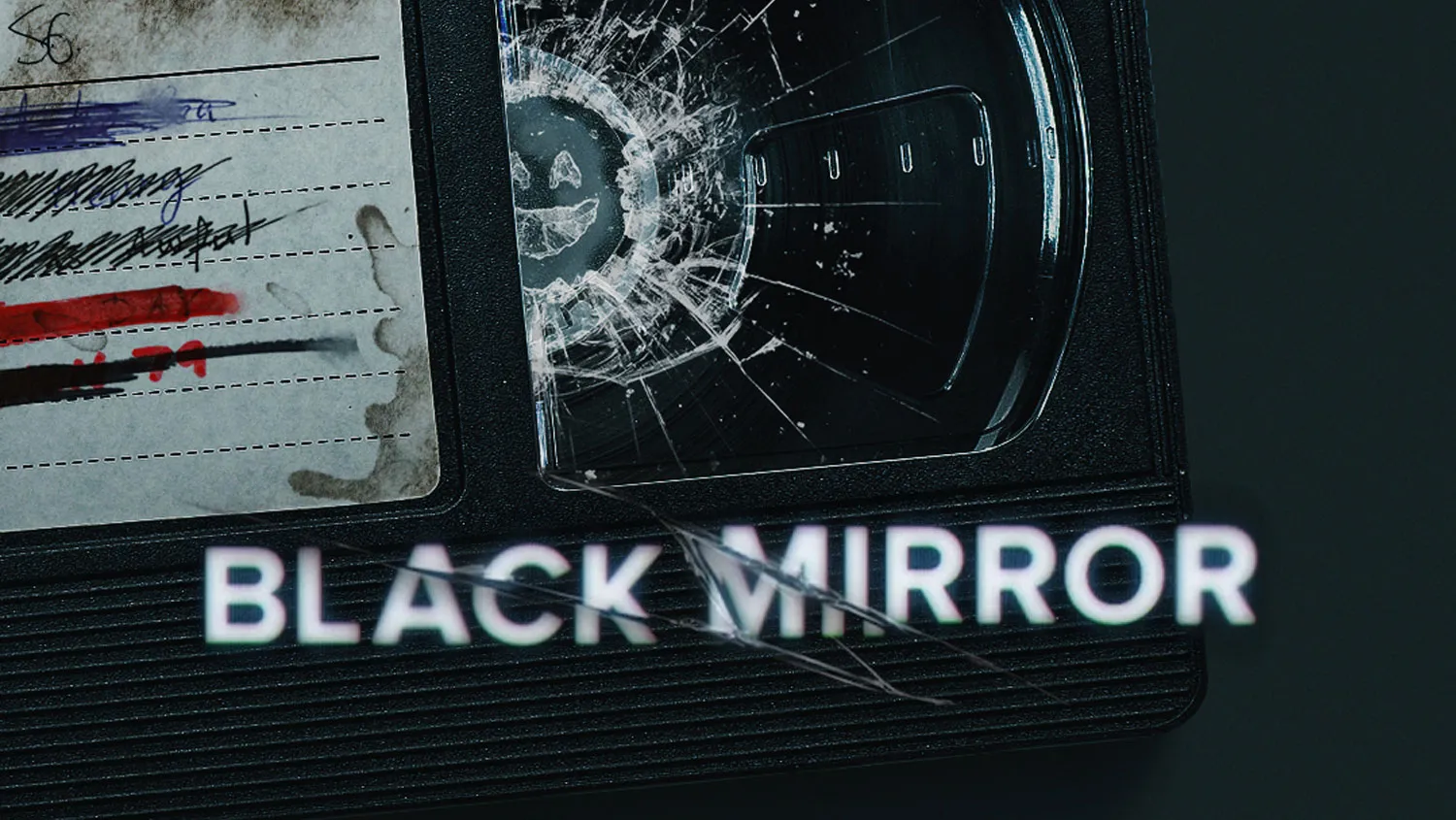
PHOTO: Deadline
More than a love letter to past Hollywood, Hotel Reverie offers a chilling warning about the future of creativity. What becomes of the soul of cinema when artificial intelligence occupies the director's chair?
And that's only one narrative in a season packed with unforeseen turns.
Want to experience the drama, the tech nightmares, and the hidden clues yourself?
Don’t miss out—click here to discover the free ways you can start watching Black Mirror Season 7 right now.
The future is waiting… but it won’t wait forever.
The sites mentioned in this article are purely for informative purposes. We do not own, host, resell, or operate any streaming sites or add-ons. We cannot verify if these sites hold licenses to distribute or stream content. Readers should exercise caution before visiting any of these websites because they are solely responsible for obtaining access to the media there.

